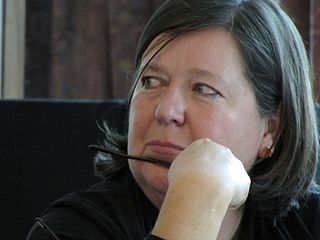The Doha Declaration on the TRIPS Agreement and Public Health was adopted by the WTO Ministerial Conference of 2001 in Doha on November 14, 2001. It reaffirmed flexibility of TRIPS member states in circumventing patent rights for better access to essential medicines.

The pharmaceutical industry discovers, develops, produces, and markets drugs or pharmaceutical drugs for use as medications to be administered to patients, with the aim to cure them, vaccinate them, or alleviate symptoms. Pharmaceutical companies may deal in generic or brand medications and medical devices. They are subject to a variety of laws and regulations that govern the patenting, testing, safety, efficacy using drug testing and marketing of drugs. The global pharmaceuticals market produced treatments worth $1,228.45 billion in 2020 and showed a compound annual growth rate (CAGR) of 1.8%.
The pharmaceutical industry in India was valued at an estimated US$42 billion in 2021. India is the world's largest provider of generic medicines by volume, with a 20% share of total global pharmaceutical exports. It is also the largest vaccine supplier in the world by volume, accounting for more than 50% of all vaccines manufactured in the world. With industry standards compliant mega production capabilities and large number of skilled domestic workforce, Indian exports meet the standards and requirements of highly regulated markets of USA, UK, European Union and Canada. According to the Department of Pharmaceuticals, Ministry of Chemicals and Fertilizers, domestic pharmaceutical market turnover reached Rs 129,015 crore in 2018, growing 9.4 per cent year-on-year and exports revenue was US$17.28 billion in FY18 and US$19.14 billion in FY19.

The pharmaceutical lobby refers to the representatives of pharmaceutical drug and biomedicine companies who engage in lobbying in favour of pharmaceutical companies and their products.

Ellen F. M. 't Hoen is an international medical activist. She is an expert in medicines policy and intellectual property law and has been a consultant to a number of countries and international organisations. In 2005 and 2006 she was listed as one of the 50 most influential people in intellectual property in the world by the journal Managing Intellectual Property.

The Agreement on Trade-Related Aspects of Intellectual Property Rights (TRIPS) is an international legal agreement between all the member nations of the World Trade Organization (WTO). It establishes minimum standards for the regulation by national governments of different forms of intellectual property (IP) as applied to nationals of other WTO member nations. TRIPS was negotiated at the end of the Uruguay Round of the General Agreement on Tariffs and Trade (GATT) between 1989 and 1990 and is administered by the WTO.

GAVI, officially Gavi, the Vaccine Alliance is a public–private global health partnership with the goal of increasing access to immunization in poor countries. In 2016, Gavi channeled more than half of total donor assistance for health, and most donor assistance for immunization, by monetary measure.
A biological patent is a patent on an invention in the field of biology that by law allows the patent holder to exclude others from making, using, selling, or importing the protected invention for a limited period of time. The scope and reach of biological patents vary among jurisdictions, and may include biological technology and products, genetically modified organisms and genetic material. The applicability of patents to substances and processes wholly or partially natural in origin is a subject of debate.

Tedros Adhanom Ghebreyesus is an Ethiopian public health official, researcher, and Director-General of the World Health Organization since 2017. Tedros is the first African to become WHO Director-General, receiving an endorsement for the role by the African Union. He played a role in the response to the Ebola virus epidemic, the ongoing COVID-19 pandemic, and the ongoing 2022 monkeypox outbreak.
The Coalition for Epidemic Preparedness Innovations (CEPI) is a foundation that takes donations from public, private, philanthropic, and civil society organisations, to finance independent research projects to develop vaccines against emerging infectious diseases (EID).
Access to medicines refers to the reasonable ability for people to get needed medicines required to achieve health. Such access is deemed to be part of the right to health as supported by international law since 1946.

The World Health Organization (WHO) is a leading organisation involved in the global coordination for mitigating the COVID-19 pandemic within the broader United Nations response to the pandemic.

Vaccine development and production is economically complex and prone to market failure. Many of the diseases most demanding a vaccine, including HIV, malaria and tuberculosis, exist principally in poor countries. Pharmaceutical firms and biotechnology companies have little incentive to develop vaccines for these diseases because there is little revenue potential. Even in more affluent countries, financial returns are usually minimal and the financial and other risks are great.

As of 11 January 2023, 12.7 billion COVID-19 vaccine doses have been administered worldwide, with 67.9 percent of the global population having received at least one dose. While 4.19 million vaccines were then being administered daily, only 22.3 percent of people in low-income countries had received at least a first vaccine by September 2022, according to official reports from national health agencies, which are collated by Our World in Data.

A dispute broke out in January 2021 between the European Commission and the pharmaceutical company AstraZeneca AB about the provision of COVID-19 vaccines during the COVID-19 pandemic, and, in February, spilled out into a dispute over Article 16 of the Northern Ireland Protocol. Vaccination proceeded apace in the UK but more slowly in the EU, and by the end of March 2021, over 30% of the UK population had received at least one dose of vaccine compared to about 8% of the EU population. This was partly due to limited availability of the AstraZeneca vaccine in the EU. The World Health Organization and the European Medicines Agency continued to state that the vaccine was safe and effective. However, a representative of the European Medicines Agency said in June that vaccines based on the mRNA technology should be preferred if available for all age groups, including for the over 60s.

Proprietary drug are chemicals used for medicinal purposes which are formulated or manufactured under a name protected from competition through trademark or patent. The invented drug is usually still considered proprietary even if the patent expired. When a patent expires, generic drugs may be developed and released legally. Some international and national governmental organizations have set up laws to enforce intellectual property to protect proprietary drugs, but some also highlight the importance of public health disregarding legal regulations. Proprietary drugs affect the world in various aspects including medicine, public health and economy.

This article documents the chronology of the response to the COVID-19 pandemic in December 2021, which originated in Wuhan, China in December 2019. Some developments may become known or fully understood only in retrospect. Reporting on this pandemic began in December 2019.
Vaccine equity means ensuring that everyone in the world has equal access to vaccines. The importance of vaccine equity has been emphasized by researchers and public health experts during the COVID-19 pandemic but is relevant to other illnesses and vaccines as well. Historically, world-wide immunization campaigns have led to the eradication of smallpox and significantly reduced polio, measles, tuberculosis, diphtheria, whooping cough, and tetanus.
Priti Krishtel is a lawyer and advocate for patent reform and increased public participation in the patent system. She co-founded the United States-based nonprofit organization the Initiative for Medicines, Access, and Knowledge.

The Initiative for Medicines, Access, and Knowledge, known as I-MAK, is a U.S.-based global 501(c)(3) organization that advocates in the public interest for affordable access to medicines, and a medicines system that is more inclusive of patients and the public.










